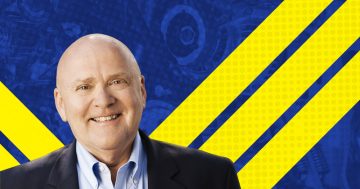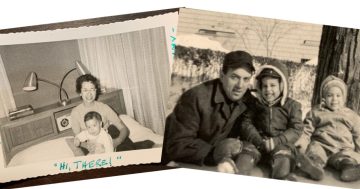Bruce Kasanoff* reflect on a conversation with a successful business leader who sought his advice because she wanted to be even better at what she did.
 A few years back, I had an enjoyable conversation with a potential client who was extremely focused and well-spoken.
A few years back, I had an enjoyable conversation with a potential client who was extremely focused and well-spoken.
She had a strong client base and a thriving business. Yet she perceived she needed an editor.
Afterwards, it occurred to me what a remarkable piece of self-insight this was on her part.
By all external measurements, she was confident in her own voice and had built a strong brand.
Her opinions, beliefs, and lessons were both effective and distinctive.
Yet she understood she could do better. She could be truer to herself. She could have a greater impact.
I feel the same way. Even though I spend all day helping other people to communicate in a clear and compelling manner, my personal efforts sometimes fall short of my potential.
We all need an editor.
I’m not simply talking about an editor in the traditional sense of someone who takes what you write and corrects your grammar or cuts a few sentences.
I’m talking about an adept outside observer who can edit you for clarity and consistency.
Are you writing, speaking, and acting in a manner that makes sense? From an external viewpoint, are you doing what the person inside of you intends to do?
Unless you are the world’s most self-aware person, the answer is often no.
You and I both need help. We need an editor, and I have two tips to share about finding and working with yours.
First, choose someone strong.
You need to find a person who is willing to contradict your self-perceptions, but who also is impartial.
Some people pay a coach or actual editor to perform this service, but you can also enlist a friend or colleague.
Just make sure your editor has the experience and skills to offer sound advice.
Personally, I use a number of editors. It depends on what I’m working on at the moment.
Sometimes I enlist a friend who is a chief executive of a major organisation — other times I ask my young adult kids for advice.
Long before an idea becomes tangible, I ask others for feedback. In many cases, their feedback is to take another path, and I usually listen.
Second, be vulnerable.
The odds are you have your spiel down pretty well, but your ‘go-to’ toolbox of how you position yourself, serve others, and go about your business can always be improved.
Don’t fall back on the same old stuff; this defeats the whole point of seeking out an editor.
It’s possible that you are uncomfortable being vulnerable in a professional setting because you perceive this could threaten your livelihood.
In fact, the opposite is true. Being vulnerable is not the same as being incompetent.
To get better, you have to admit — and confront — those areas in which you need improvement.
By seeking outside guidance, you are embracing the concepts of aiming higher and being truer to your potential.
From my perspective, that makes you a remarkable human being.
*Bruce Kasanoff is the founder of The Journey, a newsletter for positive, uplifting and accomplished professionals. He is also an executive coach and social media ghostwriter for entrepreneurs. He can be contacted at kasanoff.com.
This article first appeared at kasanoff.com.











